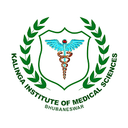PG Diploma in Epidemiology and Biostatistics
OR
Prepared by Docthub Courses Team ∣
Last updated on 26 Sep 2025
Overview
The PG Diploma in Epidemiology and Biostatistics is a specialized program focusing on the study of disease patterns, risk factors, and statistical methods used in public health research. This course belongs to the field of public health and is designed for those interested in analyzing health data and understanding disease trends. Typically lasting 1-2 years, it covers topics such as epidemiological research methods, statistical analysis, data management, and study design.

Table of Content
What is a Diploma in Epidemiology and Biostatistics?
A Diploma in Epidemiology and Biostatistics is a short-term academic program that imparts knowledge and skills necessary for analyzing health data, investigating disease outbreaks, and contributing to public health policies. This program is well-suited for individuals seeking career advancement in public health, clinical research, and medical data analysis.
Highlights
| Particulars | Details |
| Course Name | Diploma in Epidemiology and Biostatistics |
| Course Type | Diploma |
| Duration | 6 months to 2 years (varies by institution) |
| Eligibility | Bachelor's degree in Medicine, Pharmacy, Life Sciences, Public Health, or related fields |
| Admission Process | Online/offline application, document submission, entrance exam/interview (if required), admission confirmation, and fee payment |
| Fees | INR 30,000 - INR 2,00,000 (varies by institution and country) |
| Colleges in India | All India Institute of Medical Sciences (AIIMS), India Public Health Foundation of India (PHFI), India Johns Hopkins University, USA London School of Hygiene & Tropical Medicine, UK Harvard T.H. Chan School of Public Health, USA |
| Job Roles | Epidemiologist, Biostatistician, Public Health Analyst, Clinical Research Coordinator, Health Data Analyst, Policy Advisor |
Eligibility
- A bachelor's degree in Medicine, Pharmacy, Public Health, Nursing, or Life Sciences
- Some institutions may require prior experience in healthcare or research
- Proficiency in English for international applicants (IELTS/TOEFL may be required)
Duration
The duration of the program typically ranges from 6 months to 2 years, depending on the institution and mode of study (full-time, part-time, or online).
Fees
The tuition fee varies by institution and country, generally falling within the range of INR 30,000 to INR 2,00,000.
Who Should Pursue a Diploma in Epidemiology and Biostatistics?
- Medical professionals aiming to enhance their research capabilities
- Public health officials and policymakers
- Data analysts in the healthcare sector
- Researchers involved in clinical studies
Why Choose a Diploma in Epidemiology and Biostatistics?
- Develop expertise in analyzing health data and studying disease patterns
- Expand career opportunities in public health, research, and policymaking
- Acquire skills for data-driven decision-making in healthcare
- Gain employment opportunities in global health organizations such as WHO, CDC, and research institutions
Entrance Exams for Diploma in Epidemiology and Biostatistics
Some institutions may require candidates to appear for entrance exams such as:
- GRE (for international programs)
- University-specific entrance exams
- Basic aptitude tests in statistics and biology
Admission Process
- Step 1: Verify eligibility and check application deadlines
- Step 2: Submit an online or offline application
- Step 3: Provide academic transcripts and required documents
- Step 4: Take an entrance exam or attend an interview (if required)
- Step 5: Receive admission confirmation and pay the necessary fees
Syllabus for Diploma in Epidemiology and Biostatistics
The syllabus may vary by institution but typically covers:
| Year/Semester | Core Topics Covered |
| Semester 1 | Fundamentals of Epidemiology Introduction to Biostatistics Study Designs in Epidemiology Data Collection and Management Public Health Surveillance Statistical Methods in Health Research
|
| Semester 2 | Advanced Epidemiological Methods Applied Biostatistics Outbreak Investigation and Control Data Interpretation and Analysis Ethics in Epidemiological Research Research Project and Dissertation |
Top Colleges Offering Diploma in Epidemiology and Biostatistics
Reputable institutions offering this diploma include:
- All India Institute of Medical Sciences (AIIMS), India
- Public Health Foundation of India (PHFI), India
- Johns Hopkins University, USA
- London School of Hygiene & Tropical Medicine, UK
- Harvard T.H. Chan School of Public Health, USA
Scope of a Diploma in Epidemiology and Biostatistics
- High demand in public health organizations
- Opportunities in epidemiological research
- Contribution to policymaking for disease prevention and control
- Employment in governmental and non-governmental healthcare sectors
Further Study Options
- Master’s in Public Health (MPH)
- MSc in Epidemiology
- MSc in Biostatistics
- PhD in Public Health or Epidemiology
Career Opportunities After Completing a Diploma in Epidemiology and Biostatistics
- Epidemiologist
- Biostatistician
- Public Health Analyst
- Clinical Research Coordinator
- Health Data Analyst
- Policy Advisor in Healthcare Organizations
Salary Expectations
The average salary varies based on job role and geographical location:
- India: INR 4 - 10 LPA
- USA: $50,000 - $100,000 per annum
- UK: £35,000 - £70,000 per annum
Explore colleges for this course
Quick Go Links

Explore this course by location..
Related Job Roles
Biostatistician
Clinical Research Associate
Related Job Vacancies
View All 16 Jobs

FAQS
What career paths are available after earning a Diploma in Epidemiology and Biostatistics?
Graduates can pursue roles as epidemiologists, public health analysts, clinical researchers, and biostatisticians in healthcare organizations, government agencies, and research institutions.
Is it possible to complete this diploma online?
Yes, many universities offer online and part-time formats to accommodate working professionals.
Do I need a medical background to enroll in this course?
While a medical background is not always mandatory, a degree in Life Sciences, Public Health, or a related field is generally preferred.
How do Epidemiology and Biostatistics differ?
Epidemiology focuses on studying disease patterns and causes, whereas Biostatistics applies statistical methods to analyze medical and public health data.
What skills are essential for success in this field?
Strong analytical abilities, statistical knowledge, research proficiency, data interpretation skills, and a solid foundation in public health concepts are key for success.
Related Course titles

Qualifications
MBBS
BAMS (Bachelor of Ayurvedic Medicine and Surgery)
BHMS (Bachelor of Homeopathic Medicine and Surgery)
BPT (Bachelor of Physiotherapy)
BOT (Bachelors of Occupational Therapy)
BSc (Bachelor of Science)
BPH (Bachelor of Public Health)
Related Specialty
Epidemiology
Epidemic Management





